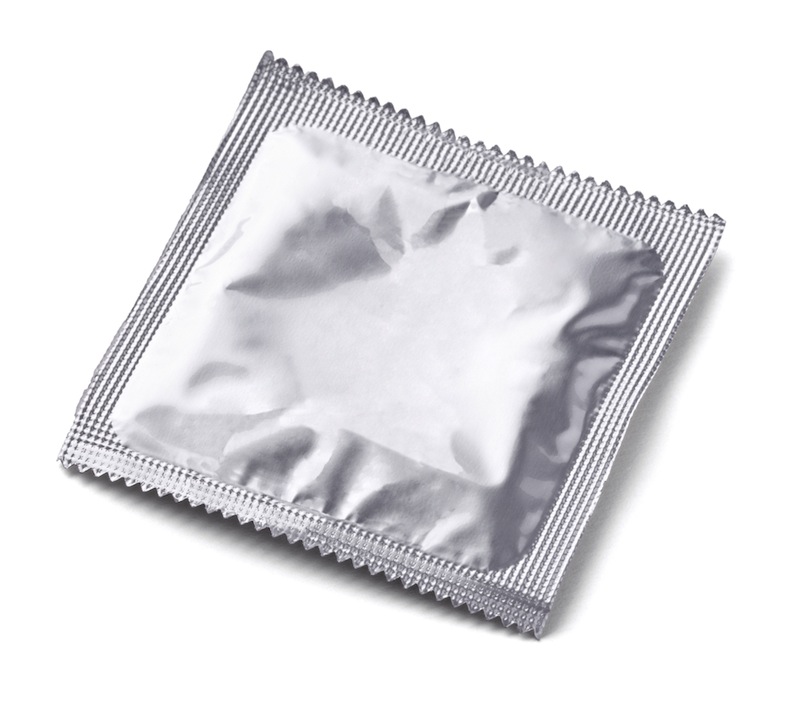Barely There? Chinese Company Debuts World's Thinnest Condom

Get the world’s most fascinating discoveries delivered straight to your inbox.
You are now subscribed
Your newsletter sign-up was successful
Want to add more newsletters?

Delivered Daily
Daily Newsletter
Sign up for the latest discoveries, groundbreaking research and fascinating breakthroughs that impact you and the wider world direct to your inbox.

Once a week
Life's Little Mysteries
Feed your curiosity with an exclusive mystery every week, solved with science and delivered direct to your inbox before it's seen anywhere else.

Once a week
How It Works
Sign up to our free science & technology newsletter for your weekly fix of fascinating articles, quick quizzes, amazing images, and more

Delivered daily
Space.com Newsletter
Breaking space news, the latest updates on rocket launches, skywatching events and more!

Once a month
Watch This Space
Sign up to our monthly entertainment newsletter to keep up with all our coverage of the latest sci-fi and space movies, tv shows, games and books.

Once a week
Night Sky This Week
Discover this week's must-see night sky events, moon phases, and stunning astrophotos. Sign up for our skywatching newsletter and explore the universe with us!
Join the club
Get full access to premium articles, exclusive features and a growing list of member rewards.
It's so thin it set records. A Chinese company has created the world's thinnest latex condom, snagging the Guinness World Record for the barely-there rubber.
The so-called Aoni condom measures just 0.0014 inches (0.036 millimeters) thick, beating the previous record-holder, Okamoto of Japan, reported The Province. The ultra-thin condom was manufactured by Guangzhou Daming United Rubber Products, a China-based company that produces roughly 200 million condoms annually.
Currently, the Aoni is available only in Asia, but Victor Chan, who led the project, is eventually hoping to introduce the product to North American markets. He said the design process for the thin but durable Aoni condom was challenging. [6 (Other) Great Things Sex Can Do For You]
"It was quite tricky," Chan told The Province. "It took a lot of work to arrange the right mix and fine-tune the ingredients to give us the right performance."
Chan is also working on developing a vibrating condom that targets a woman's G-spot and a sanitizing condom that is coated in silver nanoparticles, reported The Province.
Innovations in condom technology have gained traction lately. Last year, the Bill and Melinda Gates Foundation pledged funding for research into the development of new condoms that are more pleasurable to wear. The initiative aims to lower rates of unplanned pregnancies and reduce the spread of sexually transmitted diseases by making improvements to condoms and encouraging more people to use them.
One such project, led by researchers at the University of Tennessee in Knoxville, is attempting to use stretchy materials known as superelastomers to make condoms thinner. Another project, led by scientists at the University of Manchester in the U.K., is mixing latex with graphene — a form of carbon that has been dubbed a "super material" — to create condoms that are thinner, stronger and more elastic.
Get the world’s most fascinating discoveries delivered straight to your inbox.
Both projects have received $100,000 from the Bill and Melinda Gates Foundation.
In 2012, Planned Parenthood launched an initiative during National Condom Week to track the use of protection across western Washington state. Local Planned Parenthood chapters visited college and university campuses and distributed 55,000 condoms with QR (or Quick Response) printed on the packaging. Users were then invited to scan the codes with a smartphone after using the protection to "check in" anonymously on a map of safe sex.
In addition to more serious efforts, some innovators have taken to flexing their creative muscles when introducing new condom products. Last year, J & D's Foods, headquartered in Seattle, unveiled its bacon condom, which is patterned to resemble a slab of bacon and is flavored with the company's Baconlube.
Follow Denise Chow on Twitter @denisechow. Follow Live Science @livescience, Facebook & Google+. Original article on Live Science.

Denise Chow was the assistant managing editor at Live Science before moving to NBC News as a science reporter, where she focuses on general science and climate change. Before joining the Live Science team in 2013, she spent two years as a staff writer for Space.com, writing about rocket launches and covering NASA's final three space shuttle missions. A Canadian transplant, Denise has a bachelor's degree from the University of Toronto, and a master's degree in journalism from New York University.
 Live Science Plus
Live Science Plus





